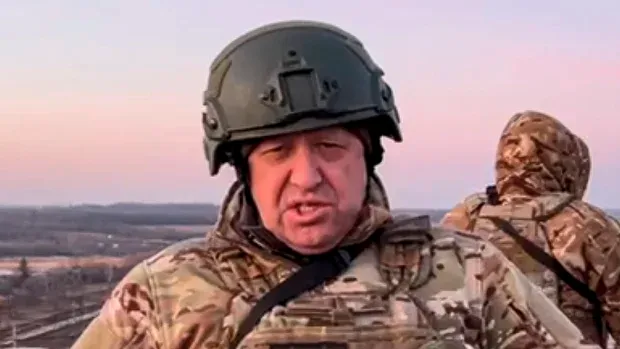The Putin vs Prigozhin Conflict: Military Misunderstanding or Strategic Ploy?

In a surprising twist of political events, on June 23rd, the leader of the Russian paramilitary mercenary group known as 'Wagner' instigated a rebellion against the Russian government. Yevgeny Prigozhin, the leader of Wagner, justified this uprising by citing the alleged killing of Wagner military personnel by top Russian military officials. Following discussions and with the intervention of Belarusian President Alexander Lukashenko, Prigozhin ultimately agreed to step back and order the withdrawal of his troops from advancing towards Moscow. This decision aimed to prevent casualties on Russian soil and shift the focus towards ongoing warfare efforts against Ukraine.
Who could have imagined that the formidable Vladimir Putin would encounter such significant resistance from internal structures? In common parlance, one might assume that he had complete control over the entire situation.
This attempted coup or revolt becomes even more intriguing when considering the timing and its implications for the various stakeholders involved, such as NATO and Ukraine. The internal conflict within Russia places a significant burden on Putin, diverting his attention away from any ambitions to further annex parts of Ukraine. Consequently, this turn of events ultimately favors both NATO and Ukraine.
Other stakeholders with a vested interest in this conflict are countries eagerly awaiting the resolution of the Russia-Ukrainian war, as it has been shown to impact several economies. As recently as last week, a delegation from South Africa, led by President Cyril Ramaphosa, visited Russia to implore an end to the war and the subsequent resumption of vital resources like gas. The events of June 23rd raise two significant questions for these countries: Firstly, if the coup succeeds, will the new government be capable of negotiating a lasting peace and resuming global trade? Alternatively, could this coup further exacerbate Russia's ability to supply the world with resources, worsening the situation?
The outcome of this civil upheaval will determine whether Russia continues its involvement in the war or if the new leadership has adopted a different perspective. This decision holds significant implications for global stakeholders who heavily rely on Russia for a consistent supply of resources, particularly gas. For those who hold idealistic Western viewpoints, this event may be seen as a parallel to 1945 when the USSR joined the allied forces to confront a global antagonist whose name shall not be mentioned. There is speculation that Prigozhin's actions could potentially shift the balance of power towards the Western side, dealing a substantial blow to countries like China. However, for conspiracy theorists, this could be perceived as yet another strategic maneuver by Russia, using apparent internal turmoil as a deceptive tactic to catch their adversaries off-guard.
A more pragmatic approach to assessing this situation is to exercise patience and allow the events to unfold, as the element of unexpectedness makes it challenging to predict the most likely outcome. Nevertheless, to gain a better understanding of the matter, it is helpful to consider key aspects regarding the central figure in this scenario, Yevgeny Prigozhin, who can be seen as the chief protagonist or antagonist.
Who is Yevgeny Prigozhin?

The life story of Yevgeny Prigozhin follows the archetypal narrative of a rags-to-riches tale, albeit with a captivating twist. The once underdog transforms into a figure that can be perceived as a vigilante or even a villain. To unravel this intriguing story, let us delve into its origins.
Who is Prigozhin? Putin’s chef?
— Russian Market (@runews) June 25, 2023
1961: Born in Leningrad, USSR. Athlete school, cross-country skiing master
1981: Caught stealing in his early 20s, leading to a 9-year jail sentence
1990: Sold hot dogs in a flea market
1995: Entered the restaurant business
2001: Personally… pic.twitter.com/llqVmBPPUF
From selling hot dogs in a flea market to ascending as the leader of a powerful mercenary vigilante group capable of waging wars on behalf of nations, it is truly fascinating how this individual attained such prominence and authority, considering his humble beginnings. One can speculate that his close relationship with Putin, whom he served food to in the early 2000s, played a significant role in solidifying his position within Putin's Russia. This connection raises questions about the true extent of their closeness and alliance.
This leads us to a critical question that only time may unveil. Given the paramount importance Putin places on securing the state and its sovereignty, is there a significant enough misunderstanding or conflict that could justify a civil unrest and potential coup, particularly in the midst of a major war with Ukraine? Considering the magnitude of the cause they were supposedly fighting for, one would think that both men would recognize the need to prioritize their efforts accordingly. Such considerations lend weight to the claims of conspiracy theorists, suggesting that there might be more to the events that unfolded on June 24th, potentially indicating a strategic ploy at play.

